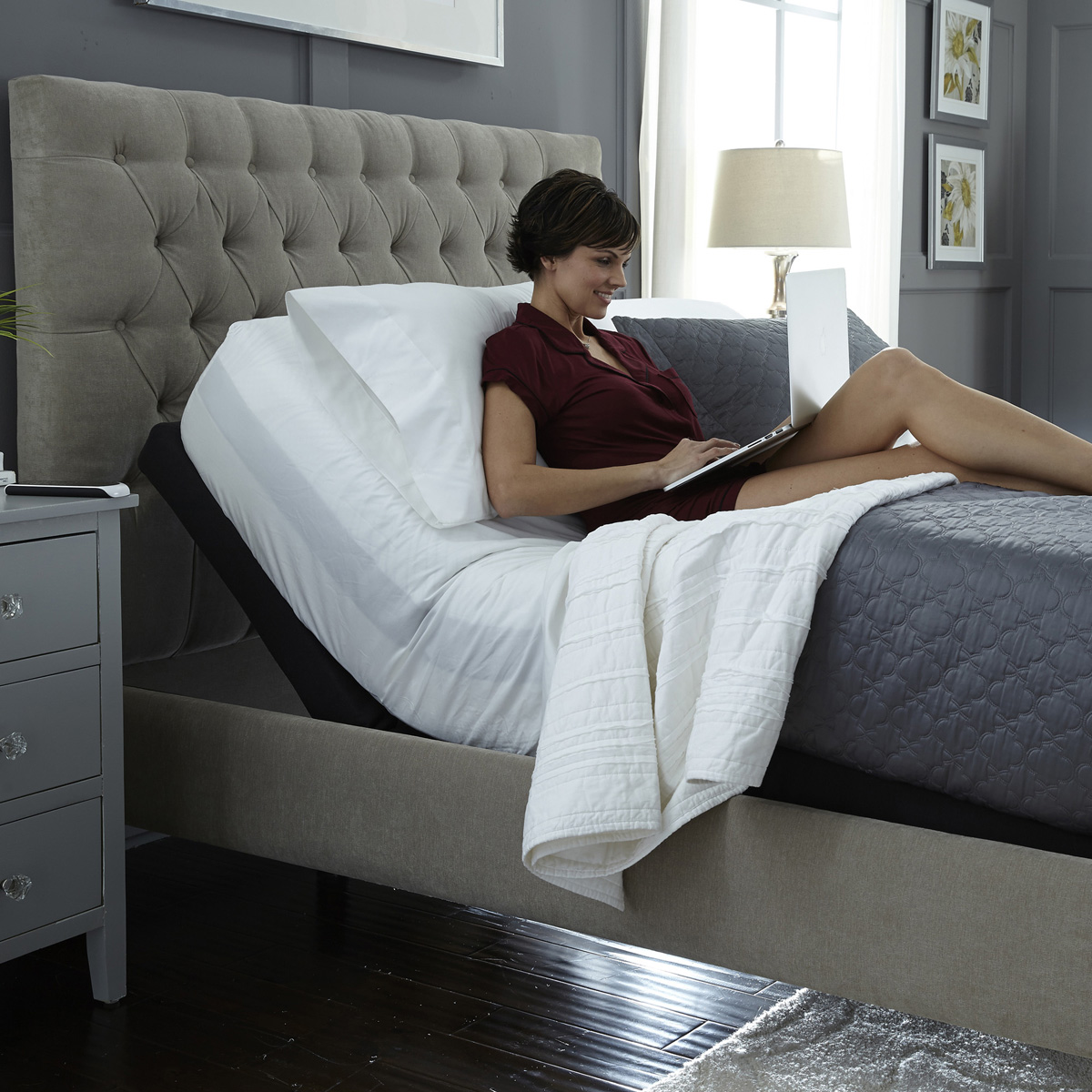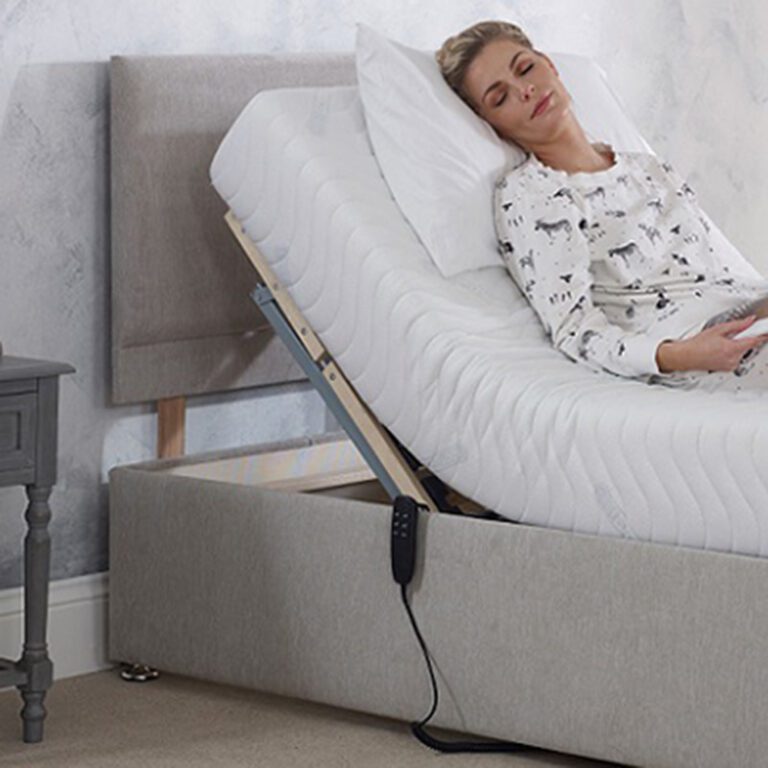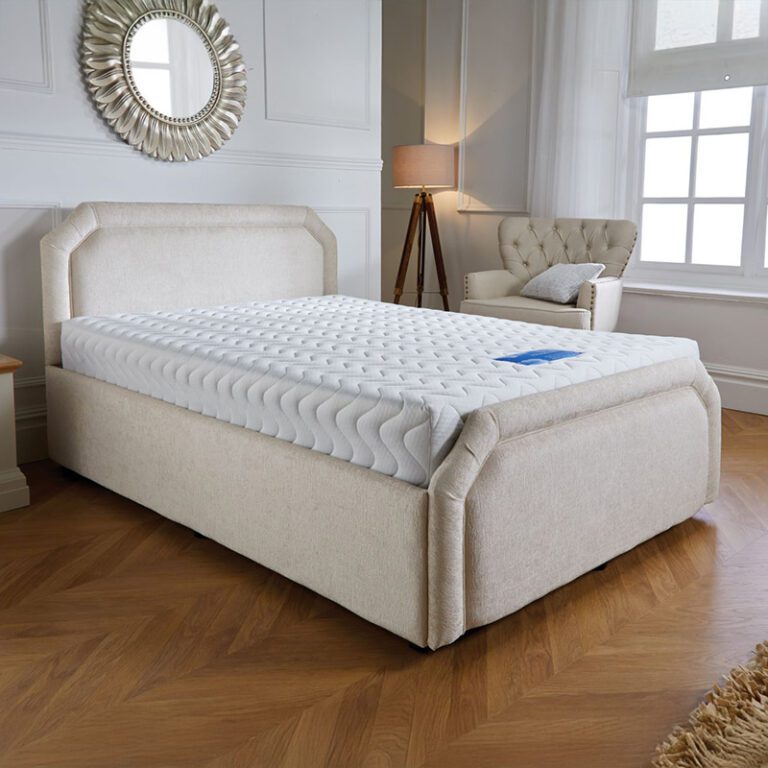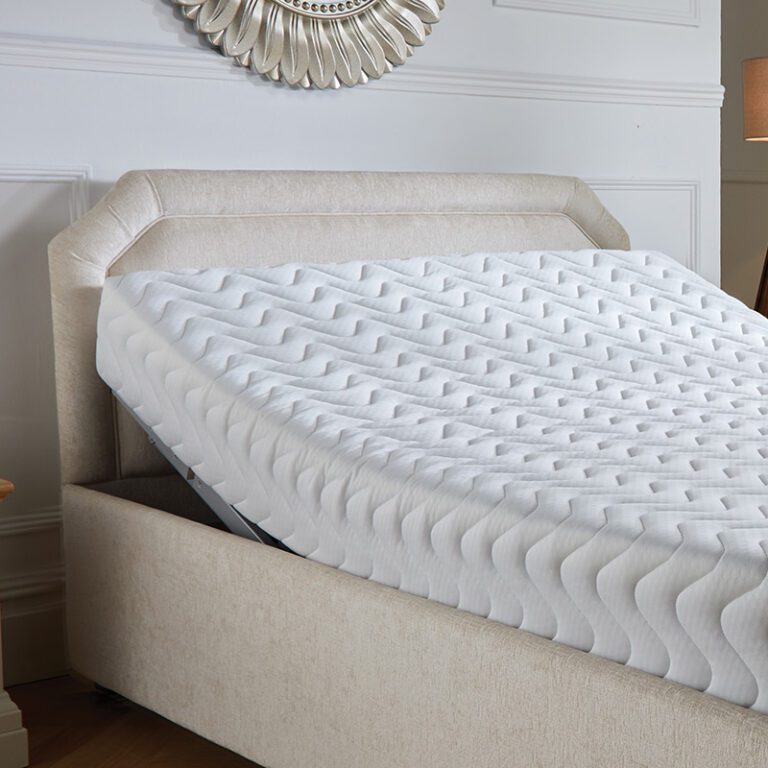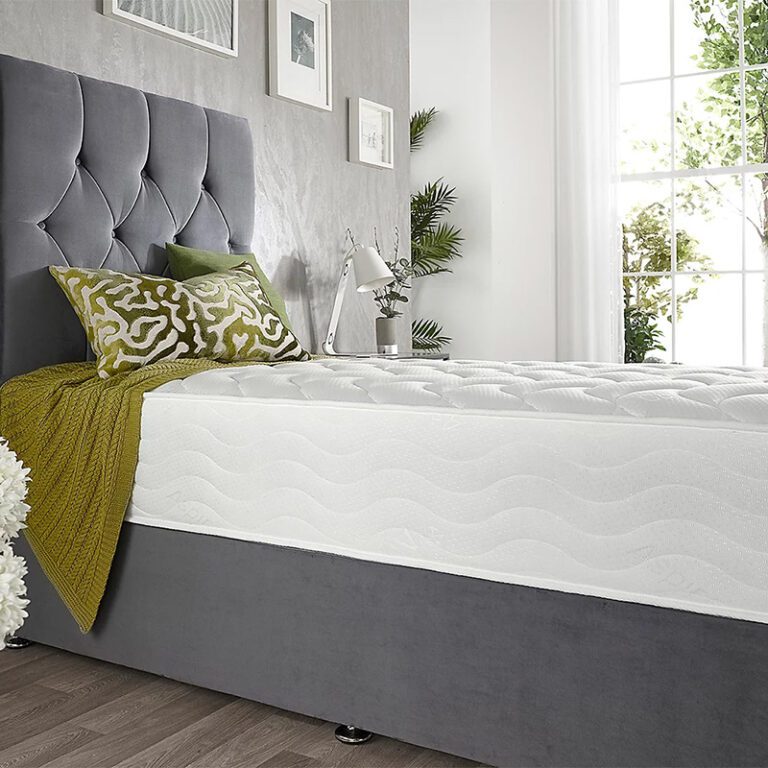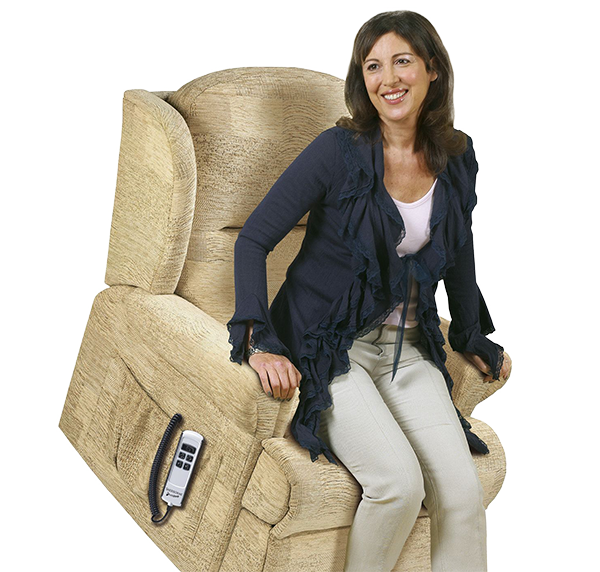Fibromyalgia is a chronic condition characterised by widespread musculoskeletal pain, fatigue, and tender points that can make everyday activities—and even sleep—a challenge. Many people with fibromyalgia struggle to find a comfortable position at night, as the condition often disrupts sleep patterns and leaves individuals feeling unrested in the morning. Fortunately, adjustable beds are increasingly recognised as a practical solution for improving sleep quality and providing much-needed relief from chronic pain.
The Challenges of Sleeping with Fibromyalgia
For those living with fibromyalgia, sleep is often elusive. The symptoms of the condition create a perfect storm that can severely affect the ability to rest properly. Here are some of the key challenges:
- Widespread Pain and Tender Points
People with fibromyalgia typically experience pain throughout the body, with certain areas being particularly sensitive. These tender points can make lying in a conventional flat bed uncomfortable, as the body’s natural curves and sensitive spots do not receive the correct support. - Sleep Disruption and Non-Restorative Rest
Chronic pain can interfere with the ability to fall asleep and stay asleep. Many individuals with fibromyalgia report waking up multiple times during the night, which leads to non-restorative sleep. - Difficulty Finding a Comfortable Position
The rigidity of a traditional bed often forces the body into positions that may exacerbate pain. Finding the right posture is crucial for people with fibromyalgia, yet the static nature of conventional beds limits personal comfort adjustments. - Stress and Anxiety
The constant battle with pain and sleep disturbances can also lead to heightened stress and anxiety, which in turn may further affect sleep quality. The mental strain associated with fibromyalgia compounds the physical discomfort, making it even harder to relax and drift off to sleep.
How Adjustable Beds Improve Pain Management
Adjustable beds offer a flexible solution to address many of the sleep challenges faced by those with fibromyalgia. By allowing users to modify their sleeping position, these beds provide a customised sleep experience that can help reduce pain and promote better rest.
- Customisable Support for Sensitive Areas
Adjustable beds give you the ability to raise or lower various parts of the bed, ensuring that tender areas receive the proper support. By altering the position of the head, torso, and legs, individuals can alleviate pressure on painful spots. For instance, raising the head slightly may help relieve tension in the neck and shoulders, while adjusting the leg position can reduce pressure on the lower back. - Facilitating Better Spinal Alignment
Maintaining a neutral spine is vital for reducing pain, and adjustable beds can be configured to support the natural curvature of your body. A well-aligned spine minimises the strain on muscles and joints, which is particularly important for people with fibromyalgia who are prone to pain and stiffness. - Reduction of Pressure Points
One of the primary benefits of an adjustable bed is its ability to distribute body weight more evenly. This helps prevent the formation of pressure points that can trigger pain in sensitive areas. By redistributing pressure, adjustable beds can help create a more comfortable sleeping surface that reduces discomfort during the night. - Assisting in Relaxation and Sleep Quality
Improved comfort at night can have a significant impact on overall sleep quality. When the body is supported in a way that reduces pain, it becomes easier to relax and fall asleep. For many with fibromyalgia, this means fewer awakenings and more continuous, restorative sleep.
Finding Your Ideal Sleep Setup
Adjustable beds are designed to be flexible and cater to individual needs, which is especially important for managing fibromyalgia symptoms. Experimenting with different positions can help you discover the configuration that best alleviates your pain and supports your body’s natural alignment. Whether you need a slight elevation of the upper body to relieve neck and shoulder tension, or a raised leg position to lessen pressure on the lower back, the customisable options available allow you to tailor your sleep environment to your unique needs.
Conclusion
Living with fibromyalgia can be a constant struggle, with chronic pain and sleep disturbances significantly affecting quality of life. Adjustable beds offer a promising solution by allowing individuals to personalise their sleep positions for improved comfort and better pain management. By providing customisable support, aiding proper spinal alignment, reducing pressure points, and promoting a more relaxed sleep experience, adjustable beds can make a real difference in the lives of those suffering from fibromyalgia. If you are seeking a way to improve your sleep and reduce chronic pain, consider exploring the range of adjustable beds available at PowerNap Ltd to find the perfect setup for your needs.
